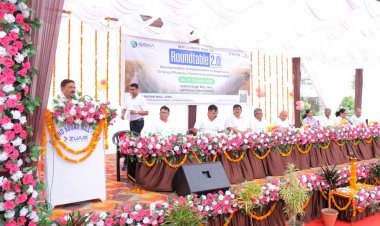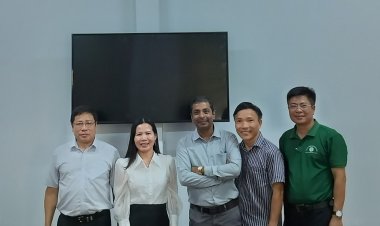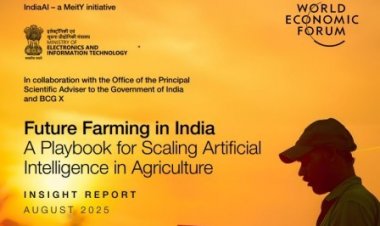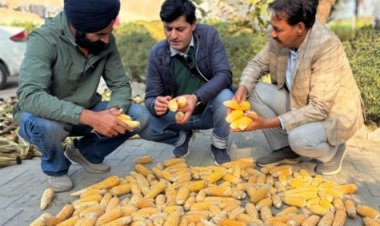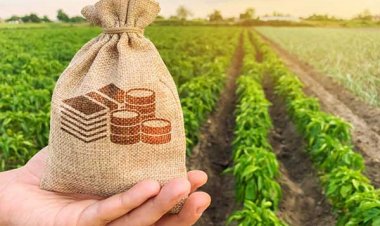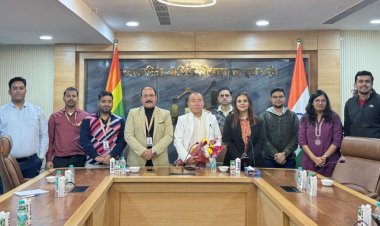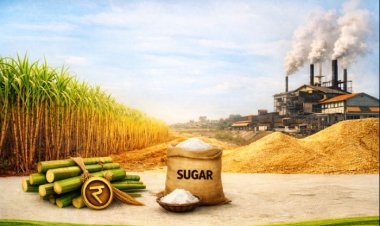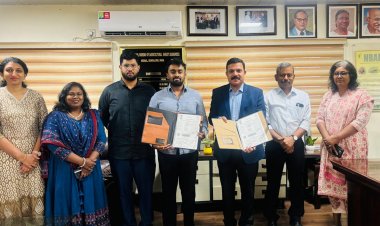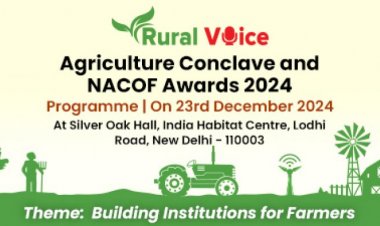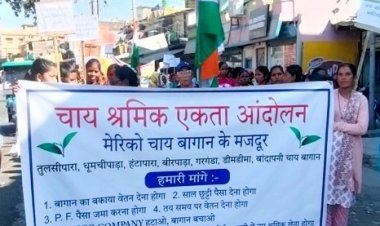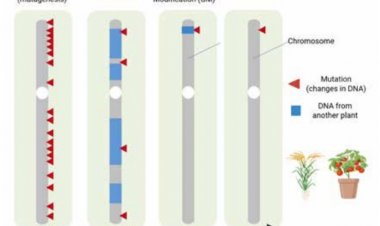Importance of technology in new-age agriculture marketing
Issues pertaining to new-age agricultural marketing came up for threadbare discussion at an agriculture conclave in New Delhi with experts throwing light on the importance of technology and explaining the role of research in making farming profitable. The conclave was held on the occasion of the second anniversary of Rural Voice, a popular interactive digital media platform dedicated to agriculture and the rural economy.
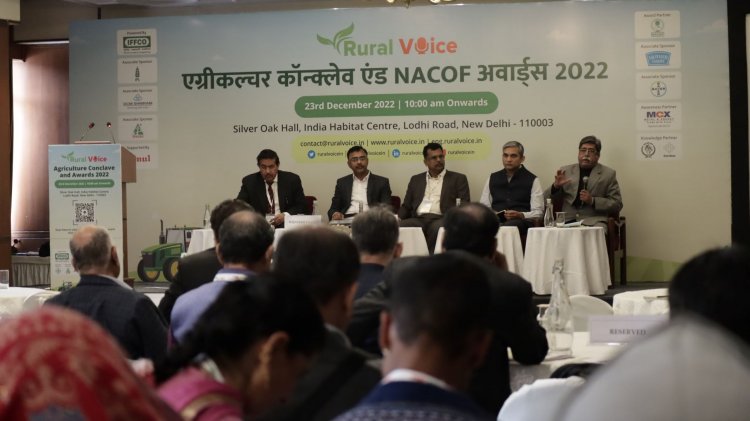
Issues pertaining to new-age agricultural marketing came up for threadbare discussion at an agriculture conclave in New Delhi with experts throwing light on the importance of technology and explaining the role of research in making farming profitable.
The conclave was held on the occasion of the second anniversary of Rural Voice, a popular interactive digital media platform dedicated to agriculture and the rural economy, on Friday. It was attended by delegates drawn from diverse sectors.
The theme of the third session was “New-age agriculture marketing – Futures & options and electronic trading”.
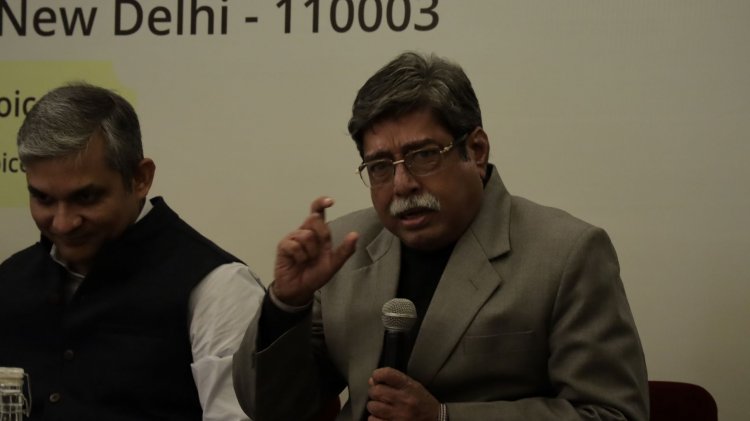
The moderator Prof. Biswajit Dhar from JNU began by comparing agriculture with the elephant in the story where each of the blind men tried to make sense of it in their own way. He lamented that there had been policies of all sorts in the last 75 years. “But agriculture is one such sphere for which there has been no policy.”
Prof. Dhar said, “Only 1 per cent of the Americans depend on agriculture. And yet the US makes an agricultural policy every five years, the document of which runs in at least 500 pages.” Similarly, he said, the EU formulates a common agricultural policy for its 27 countries. True, there was a draft policy made in India when Nitish Kumar was the agriculture minister. But the draft never became a policy. “And until we have such a policy, agriculture will continue to be the elephant of the blind men.”
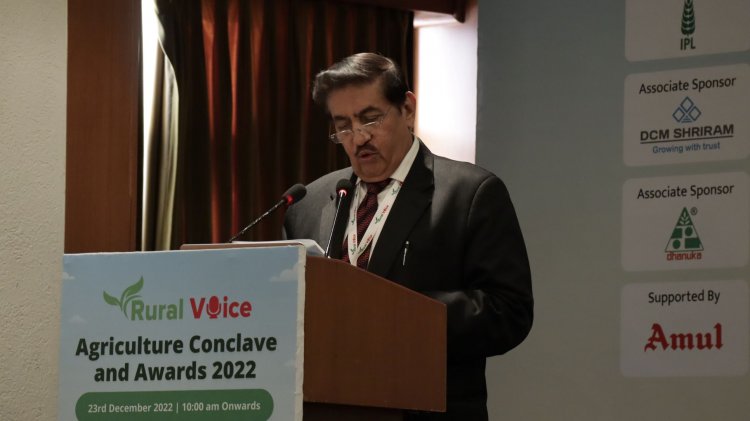
Prakash Naiknavare, Managing Director of NFCSF Ltd, highlighted the importance of technology and marketing.
“Newer and newer technologies are surfacing across the globe. How can agriculture ignore this,” he said.
As an expert from the cooperative sugar industry, he said that gone were the days when people used to get loose sugar from a kirana shop. Now sugar is available in attractive packets in refined and sulphur-less varieties and cubes.
Naiknavare said that Indian sugar was now available abroad and spoke on the role of cooperatives behind the success stories.
He said cooperatives were playing an important task in spreading knowledge and awareness at the grassroots level.
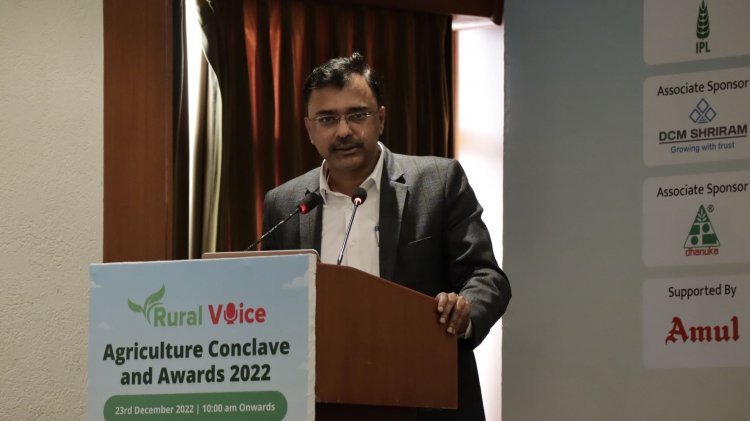
Participating in the discussion, Rajneesh Pandey Chief Manager (Marketing) IFFCO said that electronic trading would be the order of the day in the near future.
He said that 36,000 farmers’ cooperatives were attached to IFFCO, which was trying to make agriculture a profitable venture so that children of farmers did not run away from farming in search of greener pastures. Though agriculture contributed to 14-15 per cent of the GDP and 55 per cent of the population was attached to farming, youth belonging to the new generation were running away from engaging themselves in cultivation as a profession.
Pandey said the wanton use of urea was affecting soil fertility and, in the process, affecting the environment. He said that to minimize the effect of urea on soil, the International Rice Research Institute at Varanasi (UP) had launched water-soluble fertilizer and other bio-stimulants derived from sea animals.
Nanotechnology is a state-of-the-art technology, said Pandey. It is being used in a host of spheres — from space to objects of our daily use. IFFCO conducted research on it for five years and came up with Nano Urea after detailed trials. Trials were conducted on 94 different crops in the fields of 11,000 farmers and subsequently on 43 crops in 20 SAUs. The yield went up by 9 per cent. Soil health improved. Nano Urea has more than 80 per cent efficiency. “We are setting up seven production plants for Nano Urea. They will manufacture 34 crore bottles.” Nano Urea will reduce import dependence, thereby saving precious foreign exchange.
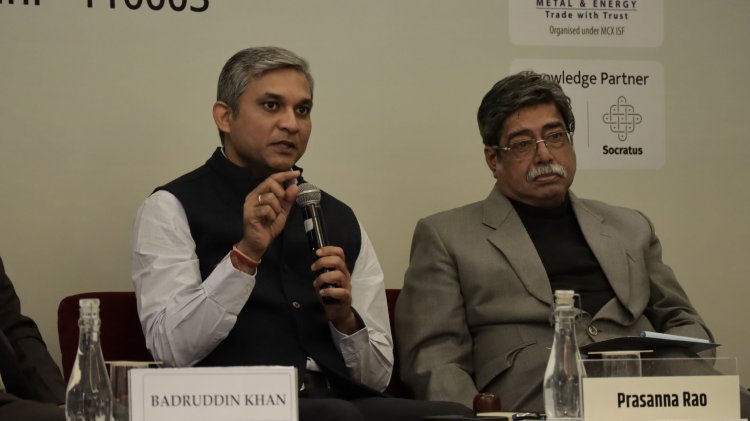
Prasanna Rao, CEO and Co-Founder, Arya.ag, said that the start-up worked in post-harvest matters to ensure that farmers got the maximum benefit of their produce.
“We try to see that farmers' loss is minimum. We work with FPOs and tell them when and where to sell their products so that they can get the best return. But we do not force them; we leave the matter to their choice,” he explained.
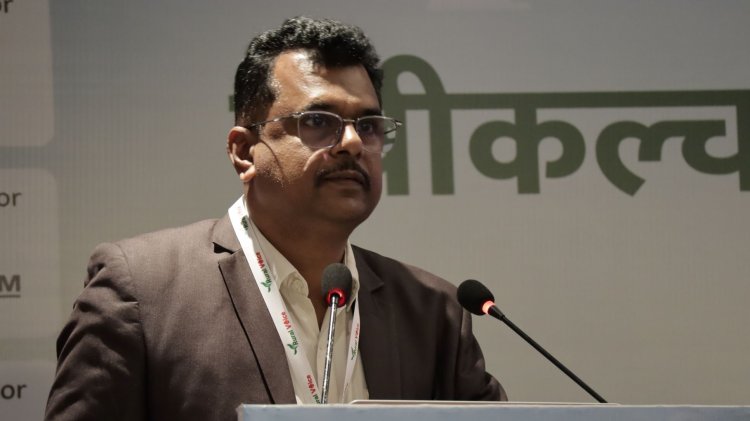
Mr. Badruddin Khan, APV-PMT-Agri, MCX India Ltd gave a presentation on how farmers could decide when it is the best time to sell their crops and get the best price so that they do not have to repent later on.
“Future trading is an answer to this. The seller signs a contract in advance and at a fixed rate, that is, trading today for a future date,” he said, and described hedging as insurance against any mishap.
The speakers were all praise for Harvir Singh, Editor-in-Chief of Rural Voice, for giving them a platform to air their views on various aspects of agriculture and the rural economy and for organizing the day-long conclave.
They gave credit to Singh for making the digital media platform act as an important bridge between the agriculturists and the government.



 Join the RuralVoice whatsapp group
Join the RuralVoice whatsapp group

















